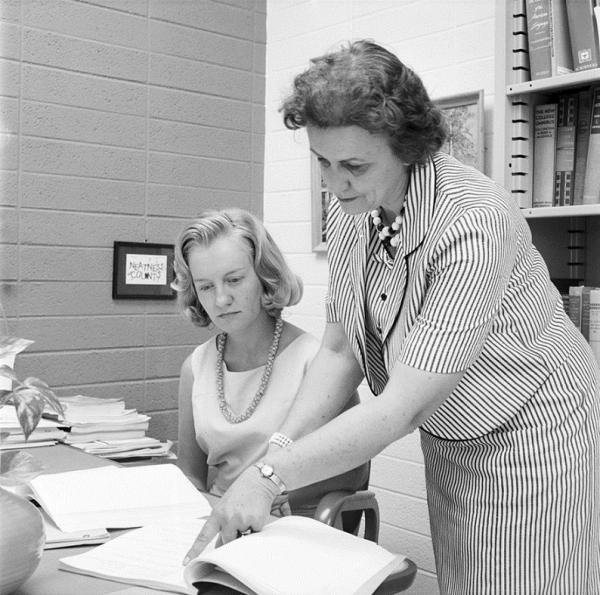November 2, 1964. You are seven weeks into your first quarter as an English major at CSU. You’re one of 10, 175 students enrolled at the university. The English department is at home on the third floor of the year-old Liberal Arts building. KCSU-FM student radio launched with a broadcast on the first day of classes, September 21. Election day is tomorrow, but at 18, you’re not old enough to vote.
Edwards and Ingersoll Halls have just opened as mixed-gender dormitories, but you live in one of the women’s dorms—Green Hall. The University takes its in loco parentis role seriously, especially for female students. As Andrea Russo describes the social regulations of the time in her 1994 history master’s thesis:
[Women] had to abide by a number of rules that regulated their behavior with male dates, including curfews and prohibitions on entertaining men in their dorm rooms. Additionally women’s choice of living quarters was also restricted by University rules. Unless they lived at home, all women were required to live in university approved housing. For freshman (sic) that meant living in University residence halls. Other undergraduate women had the choice of living in residence halls, sorority houses, or university approved rooms in private homes. No undergraduate women were permitted to live in apartments.
In addition to regulating your residence, the university’s reach extends to your social life. Chaperones are required at social functions and “public displays of affection” are prohibited. These rules apply to all students. Male students, however have no curfews and, as the Student Handbook notes, “may come and go as they please providing their conduct and scholarship are satisfactory.”
Students are not entirely content with these social strictures. In the past few years before your arrival on campus, there have been protests and Collegian editorials speaking out about the university’s treating its women students as “babies.” Next month, Collegian managing editor Vicki Hays will be discovered to have violated housing policy. When authorities find out she has moved to an off-campus apartment to avoid curfews because of her late hours working at the paper, she will be given the choice of moving back into a dorm or leaving school. She chooses to transfer to CU-Boulder.

As a member of the class of 1968, you face a steep path toward a degree. A Bachelor of Arts requires completion of 192 credit hours. In the three quarters of your freshman year, you take nine credits of English Composition, 15 of Modern Language, 10 of Science, E 46 Introduction to Poetry (2 credits), three credits each of Public Speaking and Discussion, and 1.5 credits of Physical Education. Your sophomore year will include nine credits each of American and English literature surveys. In your junior and senior years, you will work with your adviser to assure you meet graduation requirements for 30 foreign language credits, 24 credits in social sciences, 10 in science, and 60 in English. Your required English courses include Development of the English Language, Chaucer, and three courses each in Shakespeare’s comedies and tragedies.
Obviously, you spend a lot of time reading. You use a typewriter to complete your papers. You’re used to being referred to as a “girl” or “coed.” You feel the stirrings of student unrest around you, as consciousness around civil rights, the draft, and student autonomy continue to raise. By the time you graduate, CSU and the world around you will be roiling with political and social change.